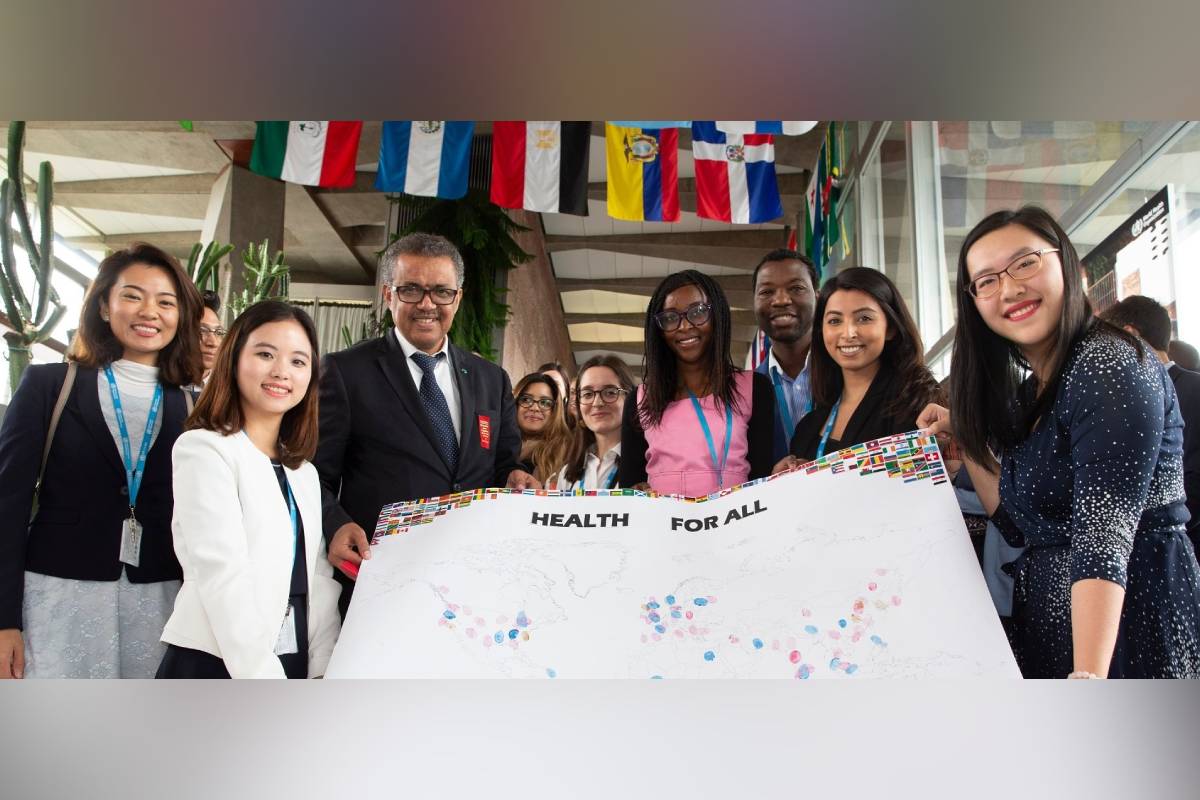
https://www.who.int/careers/internship-programme
World Health Organization Bulletin 2025 Jul 1;103(7):416–417. DOI: 10.2471/BLT.25.010725
at PubMed Central https://pmc.ncbi.nlm.nih.gov/articles/PMC12231069/
Disability Health Equity Initiative
The World Health Organization (WHO) has launched the WHO Disability Health Equity Initiative, a landmark global initiative to advance health equity for over 1.3 billion people with disabilities. Unveiled on 10 June 2025, at the United Nations Headquarters in New York during the 18th session of the Conference of States Parties to the Convention on the Rights of Persons with Disabilities, the initiative aims to guide governments, health institutions, and communities in addressing barriers to care, promoting inclusive policies, and strengthening data and research on disability and health.
Midwifery models of care (https://bit.ly/3I94oeN)
WHO has released new global guidance advocating for the expansion of midwifery-led models of care, calling them a vital, cost-effective strategy to improve outcomes for mothers and babies. Implementation guidance on transitioning to midwifery models of care explains that empowering midwives to serve as primary care providers throughout pregnancy, childbirth and the postnatal period leads to better health outcomes, fewer unnecessary medical interventions, and greater patient satisfaction.
“Expanding and investing in midwifery models of care is one of the most effective strategies to improve maternal and newborn health globally,” said Dr Anshu Banerjee, WHO director for Maternal, Newborn, Child and Adolescent Health and Ageing.
Universal access to skilled midwives could prevent over 60% of maternal and newborn deaths, saving an estimated 4.3 million lives annually by 2035. The guidance highlights tools for implementation, stresses the importance of regulation and education, and outlines adaptable models such as continuity of care and midwife-led birth centres.
WHO and partners urge governments to prioritize political will, financing, and system integration to ensure respectful, person-centered care for every woman and child.
+ + +
Protection of hospitals in the Gaza Strip (https://bit.ly/3I3kTZT)
WHO has issued an urgent appeal to safeguard Nasser Medical Complex and Al-Amal Hospital in Khan Younis, Gaza Strip. These two hospitals are the last functioning public facilities in southern Gaza, where most of the population now resides. Northern Gaza currently has no operational hospitals.
Both hospitals are overwhelmed and operating far beyond capacity, while struggling with severe shortages of medicines and supplies. Israeli authorities have indicated access routes to the hospitals will be obstructed, threatening their ability to remain functional.
Losing the two hospitals would cut 490 beds, reducing the Gaza Strip’s overall hospital bed availability to less than 1400 hospital beds (40% less hospital beds available than before the start of the conflict), for an entire population of 2 million people.
WHO calls for the protection of medical facilities, safe humanitarian access and an immediate ceasefire.
+ + +
Pregnancy and sickle cell disease (https://bit.ly/4l5UTeZ)
WHO has released its first global guideline on managing sickle cell disease (SCD) during pregnancy, addressing a growing health challenge with life-threatening risks for both women and babies. SCD, characterized by abnormal crescent-shaped red blood cells, can lead to severe complications, including strokes, infections, and organ failure. Pregnant women with SCD face a significantly higher risk of maternal death and obstetric complications.
“Quality health care can ensure safe pregnancies for women with inherited blood disorders like sickle cell disease,” said Dr Pascale Allotey, WHO’s director for Sexual and Reproductive Health and Research. The guideline provides over 20 evidence-based recommendations covering pain relief, infection prevention and blood transfusions, with a focus on respectful, individualized care. It emphasizes the need for skilled care teams and highlights the urgency of research into safe treatment options for pregnant women with SCD.
The guideline aims to improve outcomes in low- and middle-income countries, where most SCD cases and deaths occur.
+ + +
SEE ALSO: Negotiating the plastics treaty to protect health and the environment https://pubmed.ncbi.nlm.nih.gov/40630155/
Bulletin of the World Health Organization 2025 July 1;103(7):414-414A. DOI: 10.2471/BLT.25.294144.



